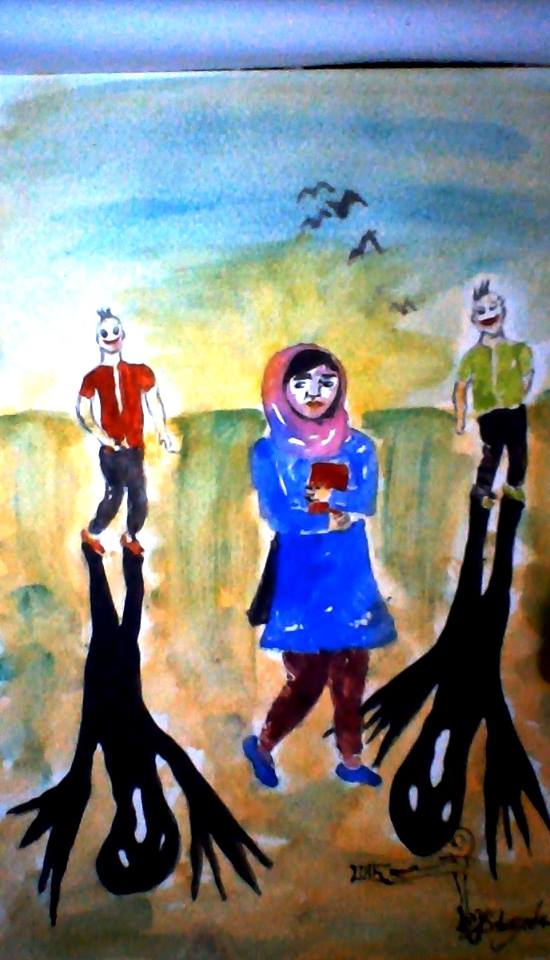
Guest Blog Post for International Anti-Street Harassment Week 2015
To be honest, I didn’t understand Afghan women’s problems till I got engaged. Before that, I was living in a family of men. I have three brothers and no biological sisters living with us. My mother is a traditional woman who believes that in-order to go to heaven; she HAS TO obey my father. It is the belief of so many other Afghan women I have met too.
Before, although I knew something is wrong here, but I couldn’t understand or feel it, till I fell in love with Fereshta. I saw the first street harassment to the girl I loved just in the second day of our engagement, and during an interval of two months I had seen at least a dozen instances of street harassments against her.
Sometimes the harassment seemed small and included men at her, but other times, we would be abused because she was driving and I was sitting next to her. It became obvious to me what most Afghans think about women driving. In their eyes, I am an honor-less man who lets his wife drive the car while he is in the car.
Many times I couldn’t control myself and fought back, sometimes even physically, because I love my fiancé and I couldn’t watch people harm her. Harassment makes women angry, but it should also make men who claim to love women angry.
I knew my fiancé was harassed when I wasn’t around, but what made me even angrier was that sometimes they harassed my fiancé even when I was with her. This was their way to denying my masculinity and her respect. The harassers thought that by doing so, they were taking the ownership of her body from me, as if I owned her body. I am not talking about the times that we were in the car and someone started shouting at us. They harassed and touched her even when I was walking right beside her in the bazaar. Most of the times, when confronted they denied the harassment claiming that it was an accident and sometimes they escaped. Other times, in the worse cases, they stood against us and fought back. They even defended her behavior.
After experiencing these instances with Freshta, I was assured that the harassment of women doesn’t have anything to do with women. I knew that it absolutely isn’t women’s fault. Sometimes we hear that some radical Mullahs say: “If women don’t go out alone, it won’t happen to them. It is the consequence of those who go out without a man.” But what about those days when I was with Fereshta and she was harassed in the streets of Kabul?
Some of them say: “The way women dress, grabs the attention of men.” I always think about this and say to myself: “OK, for a moment let’s consider that they are right. Let’s say that it is all because of the way the women dress. But does it mean it is right to harass women in the streets?”
And of course I am not talking specifically about Fereshta. There are women who are harassed even with Chadori, the most conservative attire in Afghanistan. What excuses their harassment?
So, I can surely say that harassment won’t stop unless men rethink their behaviors.
By Omid Haqbin, cross-posted from Dukhtarane Rabia (Daughters of Rabia): A blog on social justice in Afghanistan.
